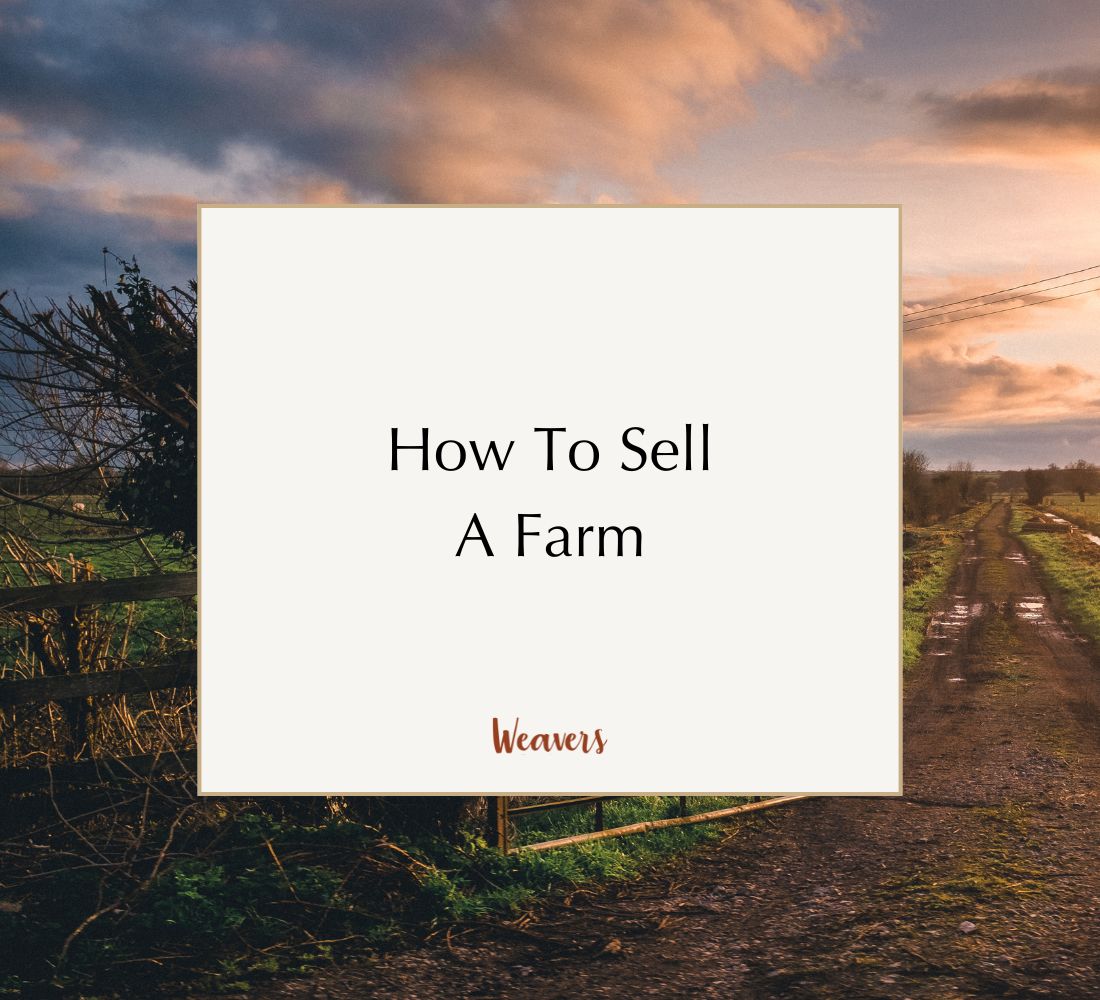We pride ourselves on our skill when it comes to selling farms and rural properties with agricultural land. With our passion and understanding, we are well-equipped to help you navigate this process.
If you’re wondering how to stand out in the market and best sell your farm for the best price, read on. This blog post will cover everything you need to know to ensure a smooth, successful transaction.
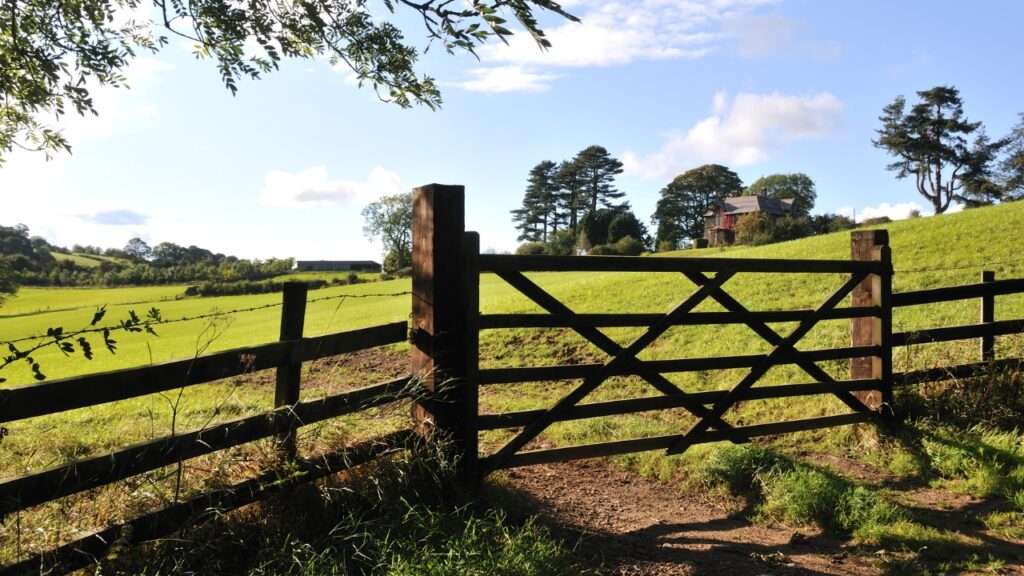
Understanding the Unique Aspects of Farms and property with agricultural land
The allure of farms and properties with agricultural land lies in the unique lifestyle they provide. It’s a different world altogether, far from the bustling urban locales – a blend of tranquillity, open spaces, and often, a thriving agricultural ecosystem. Selling a farm, therefore, is not akin to any regular property sale.
It involves showcasing not just a house, but a business and an entire landscape that has been intricately woven with facets like sprawling fields, equestrian facilities, and diverse wildlife habitats.
Each property is an individual entity with its own distinctive appeal. So, when you embark on selling a farm, you are essentially placing a unique piece of land, along with its attached lifestyle, in the market.
That’s what makes the selling process diverge considerably from a conventional property sale, presenting its own set of complexities and opportunities.
The Nuances of Selling Farmland
Venturing into the sale of a farm presents an array of unique nuances that should be delicately managed. These are properties that stretch beyond the standard housing market, encapsulating not only homes but also acres of functional land, equipped for farming or equestrian activities. Consequently, potential buyers often arrive with a distinctive set of interests and concerns.
They may be drawn to the agricultural potential of your farm, so a detailed account of its productivity, crop variety and soil fertility could be integral to piquing their interest. Equine enthusiasts, on the other hand, will likely be keen to inspect the condition and capability of equestrian facilities such as stables, paddocks and arenas.
In addition to these aspects, the structural integrity of farm buildings and barns is a factor that can’t be overlooked. As is the availability of natural resources like water bodies, mineral rights or the timber value of the woodland if any exist on the property. These various elements contribute to painting a complete picture of your property, enhancing its attractiveness to the right buyer.
Understanding and addressing these nuances allows you to showcase your farm or equestrian property in its full glory, thereby enticing potential buyers who appreciate the unique blend of home, work, and leisure these properties offer. Navigating these subtleties isn’t always straightforward, which is why guidance from an experienced, bespoke estate agent can prove invaluable in ensuring you highlight every unique aspect of your property and cater to the specific needs of your potential buyers.
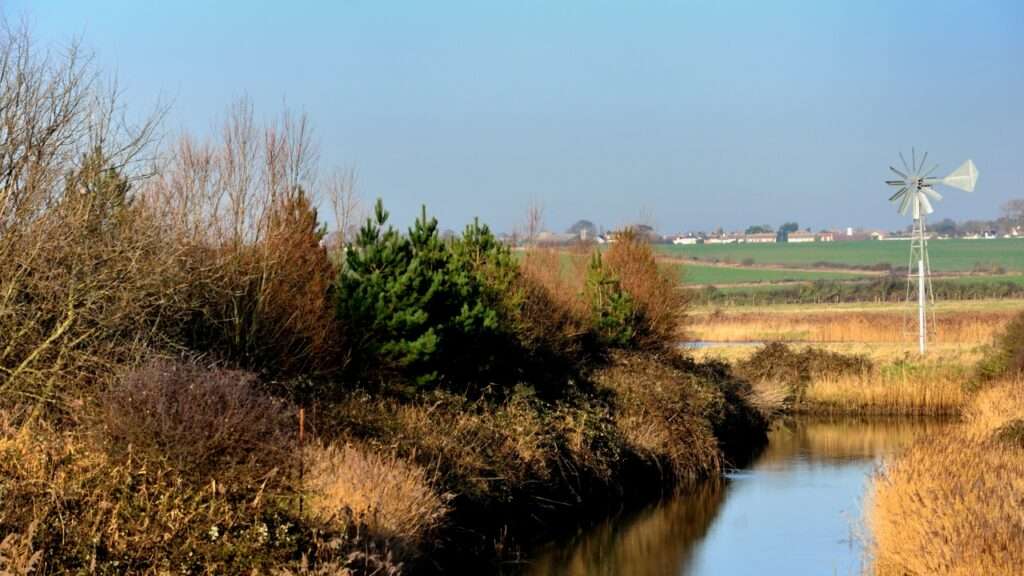
What Paperwork/Documents to Prepare
In the realm of selling a farm or agricultural land, there’s no denying the vital role paperwork plays in facilitating a smooth, successful sale. Whilst some documents mirror those required for a traditional property sale, the specifics of farmland transactions demand additional paperwork that pertains uniquely to rural property aspects.
The productivity of your farm is often of paramount interest to potential buyers, so paperwork offering detailed information about past yields, crop variety, and soil health would be a valuable addition. Further, water rights, an essential factor in the agricultural realm, need to be explicitly delineated and documented to assure buyers of their access to this crucial resource.
Additionally, any existing buildings on your property, whether residential or agricultural, require corresponding permits and planning consents. An up-to-date record of these will help buyers understand the potential uses and any restrictions attached to the buildings.
If your land is under any conservation agreements or enrolled in environmental schemes, these contracts should be made available. These agreements often carry stipulations that extend beyond the sale of the property and hence, providing clear documentation is key to avoid future disputes.
In essence, being proactive and organised about your paperwork can expedite the sales process. The transparency it offers can also instil confidence in potential buyers, which can be pivotal in securing a beneficial transaction.
Tax benefits and liabilities
Capital Gains Tax (CGT):
One of the primary tax considerations when selling a farm or agricultural land in the UK is the Capital Gains Tax (CGT). CGT is applied to the profit made from the sale of an asset, including land.
Here are some key points to keep in mind:
Annual Exemption: Every individual has an annual CGT exemption, which means you won’t be taxed on a certain amount of your gains. The annual exemption was reduced for the 23/24 tax year from £12,300 down to £6,000. From 2024/25, we expect it to be reduced further to £3,000, though at the time of writing this is not yet confirmed.
Entrepreneurs’ Relief: The sale of land in a farming business will attract the standard rate of 28%. But if you qualify, Entrepreneurs’ Relief (now known as Business Asset Disposal Relief) can reduce the CGT rate from the standard rate to 10% on qualifying assets, subject to certain conditions. This relief is designed to benefit individuals selling businesses or business assets, which may include agricultural businesses. Speak to a tax expert to ensure eligibility.
Inheritance Tax (IHT): Proceeds from the sale of agricultural land may be subject to Inheritance Tax if the owner passes away within seven years of the sale. Agricultural Property Relief (APR) can provide relief on the value of agricultural property for IHT purposes.
Rollover Relief: In certain cases, if you reinvest the proceeds from the sale into another qualifying business asset, you may be eligible for Rollover Relief, deferring the CGT until the new asset is sold.
Agricultural Property Relief (APR): APR is a key tax relief designed to reduce the value of qualifying agricultural property for IHT purposes. To be eligible for APR, the land must be used for agriculture, either as a working farm or as part of a working farm. This relief can significantly mitigate the impact of IHT on your estate.
When selling agricultural land, it’s essential to consider succession planning to ensure a smooth transition and potentially reduce tax liabilities for future generations. Establishing trusts or making gifts during your lifetime can be strategic moves, but it’s crucial to seek professional advice to navigate the complexities involved.
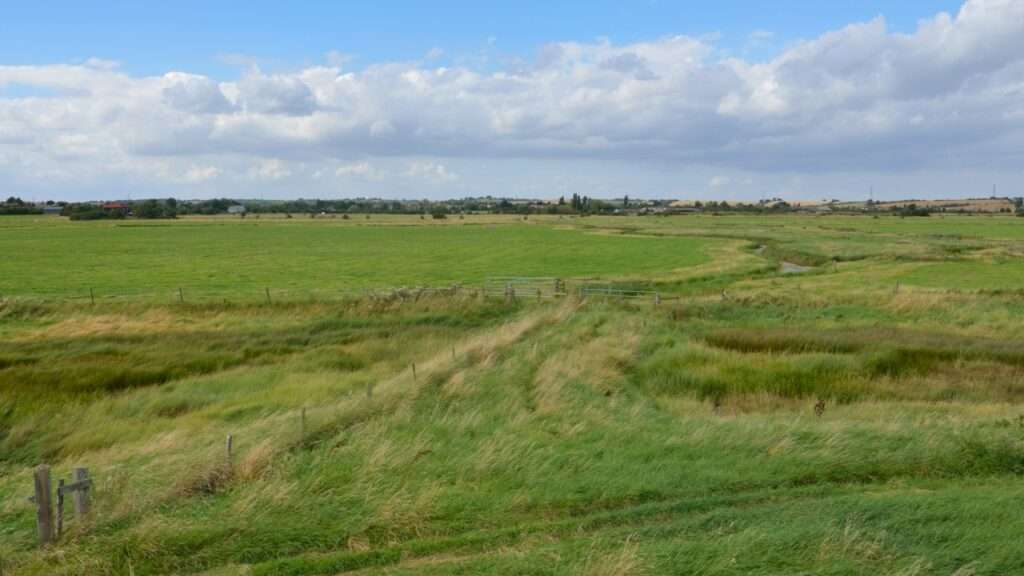
Preparing Your Farm or Land for Sale
When it’s time to put your farm on the market, the final yet critical phase of preparation begins. An aesthetically pleasing, well-maintained farm speaks volumes to potential buyers about the care and attention you’ve put into the property. Therefore, take the time to spruce up your buildings and landscapes. A fresh coat of paint on buildings or repairing any dilapidated structures can significantly enhance the overall appeal of your property.
Equally important is the condition of your agricultural land. If you have been cultivating crops, ensure the soil is fertile and healthy. A lush, thriving landscape not only looks appealing but also vouches for the productivity of your farmland. You could even consider planting in-demand crops to attract buyers interested in immediate farming opportunities.
If your property boasts equestrian facilities, it’s worth investing in their upgrade. A well-equipped, modern stable or a well-maintained paddock could prove irresistible to equine enthusiasts.
Remember, each aspect of your property contributes to the saleability. By investing in thoughtful preparation, you enhance this lifestyle appeal, making your property not just a piece of land, but a dream home for the right buyer. With this bespoke approach to preparation, your farm or rural property is bound to leave a lasting impression, making it a stand-out choice in the market.
If you are moving from a farm, it’s likely you will be downsizing. Consider reading our step-by-step guide to downsizing here.
Crafting a Bespoke Marketing Strategy for Farmland or agricultural property
Having a tailored marketing strategy is key when selling a farm or any rural property. Unlike traditional property sales, rural property sales necessitate highlighting not only the aesthetic allure but also the practical advantages of the property, ranging from its potential for agriculture and equestrian pursuits to its suitability for outdoor recreational activities like hunting, fishing, or conservation.
Remember, you’re selling more than just land – you’re selling a lifestyle. Therefore, your marketing approach needs to tell a compelling story that encapsulates the charm and opportunities your property offers. Using striking, high-quality photos and videos can help illustrate this narrative, allowing potential buyers to envision the property’s appeal. Don’t shy away from using drone footage either, as it can provide an unparalleled bird’s-eye view of the land, capturing the expansive fields, water bodies, and any other notable features.
Utilise different platforms to get the word out – online listings, social media, print advertising, and even agricultural or equestrian trade shows can help you reach your target audience. Your marketing strategy should also include identifying and reaching out to potential buyers directly, such as farmers looking for additional land or city dwellers dreaming of a countryside retreat.
Moreover, remember to highlight any unique aspects that set your property apart. Whether it’s a state-of-the-art barn, fertile soil perfect for organic farming, or a tranquil fishing spot, these attributes could be the deciding factors for potential buyers. Be transparent about any current or potential income sources from the property too, such as lease agreements for farming, grazing, or hunting rights.
In essence, your marketing strategy should be as unique as your property, ensuring it stands out in a competitive market and appeals to the right audience. With a bespoke approach, your farm or rural property is sure to capture attention and leave a lasting impression.
Read more about bespoke property marketing.
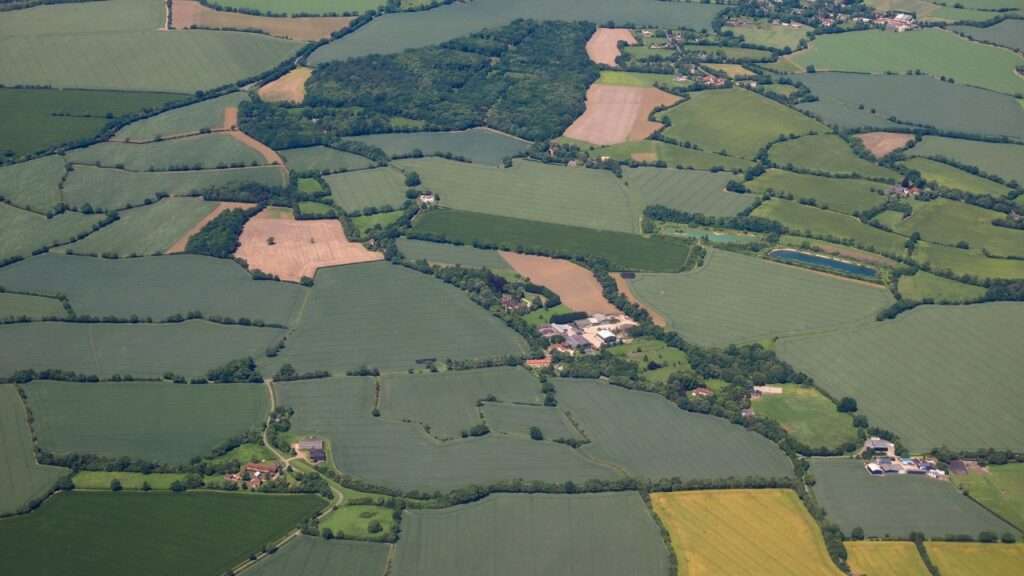
Employing the Services of a Bespoke Estate Agent
Selling a farm or a property with agricultural land isn’t a simple task, and doing it alone might feel like a formidable challenge. That’s where the value of a specialist estate agent truly comes into play. With their help, you can navigate the complexities that come with selling a distinctive property like yours.
Their unique approach means that they appreciate the individuality of each farm or rural property and can offer tailored advice to match. Having such a knowledgeable ally can be a game-changer, as they can expertly evaluate the unique elements of your property to determine its market value accurately.
Learn more in our blog post – a unique estate agent for unique homes.
An agent’s expertise extends beyond just pricing. They possess an established network of potential buyers, including those with a particular interest in the rural lifestyle. They can tap into this network, bringing your property to the attention of individuals or families who are genuinely drawn to the countryside charm.
Working with a bespoke estate agent is like having a personal guide for your property sale journey. They can advise you on marketing strategies to highlight the individual characteristics of your property and suggest improvements that could increase its appeal.
Perhaps most importantly, an exceptional estate agent understands the intricacies involved in negotiating and finalising deals for rural properties. They can assist in skilfully negotiating terms and conditions that benefit you, whilst ensuring all necessary paperwork is completed, paving the way for a smooth transaction.
Engaging the services of a bespoke estate agent is a strategic move when selling your farm or rural property. It not only reduces the burden on you but also ensures your property gets the exposure and representation it deserves in the marketplace.
Get in touch
If you own a farm and are considering your options, we’d love to make your journey a little easier.
Contact the team today via telephone on 01702 411146, or you can reach us via email at team@weaversestates.co.uk.
We’re very much looking forward to hearing from you.

